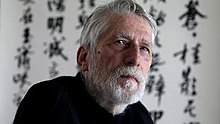Pierre Ryckmans (writer)
| Pierre Ryckmans | |
|---|---|
 |
|
| Born |
28 September 1935 Brussels, Belgium |
| Died | 11 August 2014 (aged 78) Sydney, New South Wales, Australia |
| Occupation | Professor |
| Nationality | Belgian |
| Alma mater | Catholic University of Leuven (1834–1968) |
| Notable awards |
Prix Renaudot, Prix mondial Cino Del Duca, Prix Guizot-Calvados, Christina Stead Prize |
Pierre Ryckmans (28 September 1935 – 11 August 2014), who also used the pen-name Simon Leys, was a Roman Catholic Belgian-Australian writer, essayist and literary critic, translator, art historian, sinologist, and university professor. His work particularly focused on the politics and traditional culture of China, calligraphy, French and English literature, the commercialization of universities, and the sea in literary works. Through the publication of his trilogy Les Habits neufs du président Mao (1971), Ombres chinoises (1974) and Images brisées (1976), he was one of the first intellectuals to denounce the Cultural Revolution in China and the idolizing of Mao in the West.
Pierre Ryckmans was born at Uccle, an upper middle class district of Brussels, to a prominent Belgian family living in a house on Avenue des Aubépines. He was the son of a publisher, the grandson of Alfonse Ryckmans, an Antwerp alderman and vice president of the Senate, the nephew of Pierre Ryckmans, a governor general of the Belgian Congo, and Gonzague Ryckmans, a professor at the Université catholique de Louvain and a recognized expert of Arabic epigraphy.
He attended the Servites de Marie primary school near his home, then studied Greek and Latin humanities at the Cardinal Mercier diocesan school in Braine-l'Alleud. There, one of his teachers, abbé Voussure, "finished ingraining in him an unwavering Christian faith."
From 1953 he studied law and art history at the Université catholique de Louvain.
In 1955, his father died prematurely. In May, he became a member of a delegation of ten young Belgians invited to spend a month in China. During that visit he took part in a conversation with Zhou Enlai, the Premier of the People's Republic of China. As a result, he became sympathetic to the Maoist regime: "I confidently extended to the Maoist regime the same sympathy that I felt for all things Chinese." He returned from the trip with also the firm view that "it would be inconceivable to live in this world, in our age, without a good knowledge of Chinese language and a direct access to Chinese culture."
...
Wikipedia
